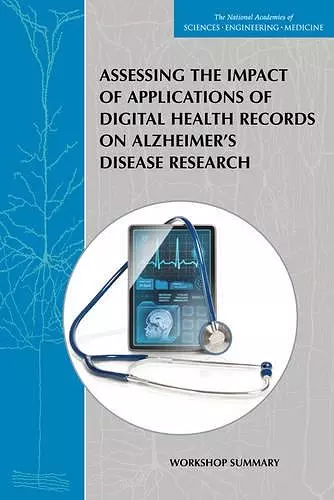Assessing the Impact of Applications of Digital Health Records on Alzheimer's Disease Research
Workshop Summary
Institute of Medicine author Board on Health Sciences Policy author Forum on Neuroscience and Nervous System Disorders author National Academies of Sciences, Engineering, and Medicine author Lisa Bain editor Sheena Posey Norris editor
Format:Paperback
Publisher:National Academies Press
Published:26th Mar '16
Currently unavailable, and unfortunately no date known when it will be back

Health information technology is providing patients, clinicians, and researchers with access to data that will enable novel approaches to science and medicine. Digital health records (DHRs) are capable of being shared across different health care settings for the examination of possible trends and long-term changes in a patient's disease progression or status as well as the effectiveness of the health care delivery system. While prevalence of paper records remains high, there has been a rapid trend toward the digitalization of medical and health records in many countries.
DHRs are widely viewed as essential for improving health, reducing medical errors, and lowering costs. However, given that these databases have the potential to house the complete medical and health information of individuals, the potential misuse, de-identification or breaching of this data may have serious implications.
On July 20, 2015, the Institute of Medicine's Forum on Neuroscience and Nervous System Disorders held a public session at the 2015 Alzheimer's Association International Conference to assess the impact of DHRs on Alzheimer's disease (AD) research. An estimated 46.8 million people worldwide are currently living with dementia, and the prevalence is expected to double every year for the next 20 years. Given the few therapies currently available to treat the symptoms of AD, compared to other central nervous system disorders, participants explored how DHRs may be used to help improve clinical trial design and methodology for AD research. This report summarizes the presentations and discussions from this workshop.
Table of Contents- Front Matter
- 1 Introduction and Overview
- 2 Building Infrastructure to Enable Data Sharing and Management
- 3 Ethical, Legal, and Societal Considerations
- 4 Potential Next Steps
- Appendix A: References
- Appendix B: Workshop Agenda
- Appendix C: Participant Biographies <
ISBN: 9780309379724
Dimensions: unknown
Weight: unknown
46 pages